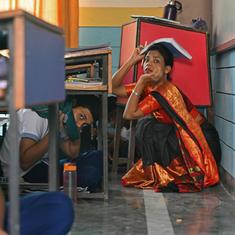The Election Commision of India has come to the rescue of political parties like the Bahujan Samaj Party, the Nationalist Congress Party and the Communist Party of India (Marxist), which were set to lose their national party status after their dismal performance in the last Lok Sabha poll and subsequent assembly elections.
These parties have reason to breathe easy as a new order will allow them to continue the use of their respective election symbols, which would have been taken off the reserved list if they had lost their national party status.
The Election Commission notified a change in its rules on Monday allowing a review of a political party’s national party status after two successive elections and not after every poll as is the present case.
The Election Symbols (Reservation and Allotment) order was amended after several political parties,including the Nationalist Congress Party, the Samajwadi Party, the Rashtriya Janata Dal, the Bahujan Samaj Party and the Communist Party of India (Marxist) petitioned the Election Commission seeking a review of the exsiting criteria for according national status to parties.
New rules
According to this Order, a party qualifies as a national party if it polls 6% votes in a Lok Sabha election or assembly elections in four states besides winning four Lok Sabha seats. It can also enjoy the national tag if it has 11 Lok Sabha MPs from three states. At present, the criteria are reviewed after every election.
Only three political parties – the Bharatiya Janata Party, the Congress and the Communist Party of India (Marxist) – enjoyed the national status after the 2014 Lok Sabha election while parties like the Communist Party of India, the Bahujan Samaj Party and the Nationalist Congress Party lost that privilege.
Unable to win a single seat in the 2014 Lok Sabha election, the Bahujan Samaj Party’s vote share was down to 4.1% while the Nationalist Congress Party polled only 1.6% votes and won six Lok Sabha seats. The Communist Party of India vote share was down to 0.8% in 2014. The Communist Party of India (Marxist) had managed to retain its national status on the basis of its strength in Kerala, West Bengal Tripura and Tamil Nadu but it was on the verge of being stripped of this tag after it failed to open its account in Tamil Nadu in the recent assembly election.
The interests of all parties have now been safeguarded by the Election Commission which notified on Monday that the amended rules will be effective from January 1, 2014.
Retaining benefits
The petitioners had argued that an electoral result was determined by a variety of reasons and sometimes even old and numerically strong parties recorded unusually poor results because of a wave in favour of a particular political party. Stating that these may well prove to be an aberration, they appealed to the Commission to consider all these factors and review the status after ten years. The Election Commission agreed with their contention and amended the rules accordingly.
The decision is a huge relief for the concerned political parties as they stand to lose several benefits if they are stripped of the national party tag. The most important of these is their entitlement to a reserved election symbol, which can be taken off the reserved list if a party does not qualify for national status. As a result, anybody contesting an election is entitled to use the symbol. This is a huge setback for political parties which have, over the years, become idenfitied with a particular symbol. Any change can be extremely confusing for a voter in a country like India with high rates of illiteracy.
Other privileges which come with the national party status include free airtime on public broadcasters All India Radio and Doordarshan during the Lok Sabha elections. These parties are also entitled to two free copies of electoral rolls while their candidates need only one proposer to file their nomination papers. National parties are allowed to deploy 40 star campaigners whose expenditure is not clubbed with the election expenses of an individual candidate.










